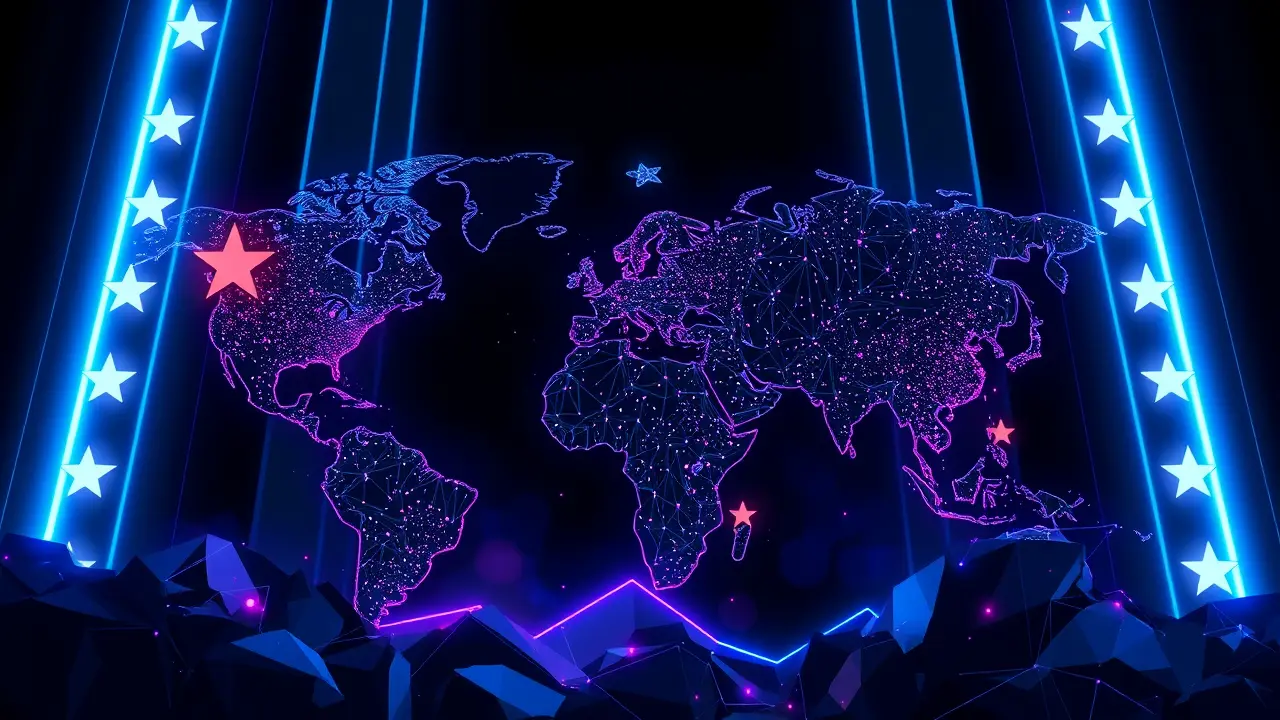China Tightens Rare Earth Export Controls, Worrying EU
The European Union’s diplomatic corridors are humming with a familiar, grim tension following China’s decisive move to tighten its stranglehold on the global rare earth supply chain, a development that senior figures within the bloc privately concede will compound a deterioration in trade relations that has only accelerated since a largely fruitless leaders’ summit this past July. This is not merely a trade skirmish; it is a masterclass in geopolitical leverage, a tactic with historical precedents that should sound alarm bells from Brussels to Washington.On Thursday, China’s commerce ministry announced a sweeping ‘upgrade’ to its export licensing requirements, initially established in April, significantly expanding their scope to encompass not just the raw minerals themselves but, critically, the sophisticated technologies required to process them. This strategic escalation effectively allows Beijing to control the entire pipeline, from extraction to the creation of the powerful magnets essential for everything from electric vehicles to advanced fighter jets, mirroring the kind of resource nationalism that has shaped global power dynamics for centuries.The timing is impeccably cynical, coming as the EU grapples with its ambitious Green Deal, a policy initiative entirely dependent on these very elements—neodymium for permanent magnets in wind turbines, dysprosium for heat resistance in EV motors, europium for the red phosphors in energy-efficient lighting. One must look back to the 1973 oil embargo to find a comparable moment where a cartel of producers weaponized a foundational resource, yet this is potentially more insidious due to the opacity and complexity of the supply chain.China currently refines nearly 90% of the world’s rare earths, a dominance it solidified after a 2010 dispute with Japan, during which it abruptly slashed exports, sending prices soaring and demonstrating its willingness to use this tool for political ends. The new controls, framed under the benign banner of ‘protecting national security and fulfilling international obligations,’ are a classic piece of realpolitik, offering a veneer of legality while applying maximum pressure.Analysts at the Rhodium Group note that this move is likely a calibrated response to the West’s own escalating restrictions on the export of advanced semiconductor technology to China, creating a stark quid pro quo: you limit our access to chips, we limit your access to the materials that power your digital and green transitions. The EU’s response, thus far mired in ‘deep concern,’ highlights a fundamental vulnerability; for all its talk of strategic autonomy, the bloc has failed to diversify its supply sources or meaningfully invest in its own processing capabilities, leaving it perilously exposed.Projects like the proposed rare earth mine in Kiruna, Sweden, or recycling initiatives for electronic waste, remain years from making a dent in China’s monopoly. The consequences are profound and multifaceted: European automakers like Volkswagen and BMW face not just rising costs but potential production halts, which could derail their entire electrification timelines and hand a colossal advantage to Chinese competitors like BYD, who operate with guaranteed domestic supply.In the defense sector, where rare earths are vital for precision-guided munitions, radar systems, and stealth technology, the implications for NATO’s security posture are equally grave. This is a conflict fought not on battlefields but in boardrooms and customs offices, and Beijing holds most of the high-value pieces.As one veteran trade negotiator, who wished to remain anonymous, lamented, ‘We spent two decades outsourcing our industrial resilience for short-term cost savings, and now the bill has come due. ’ The path forward is fraught, requiring a Marshall Plan-level investment in alternative mining ventures from Australia to Greenland, a rapid scaling of urban mining through e-waste recycling, and a painful reassessment of the very free-market principles that enabled this dependency. Without such a concerted, urgent effort, the EU risks finding its green and digital futures held hostage by a single, strategic adversary, a scenario that would make the current worries seem trivial by comparison.
It’s quiet here...Start the conversation by leaving the first comment.
© 2025 Outpoll Service LTD. All rights reserved.
